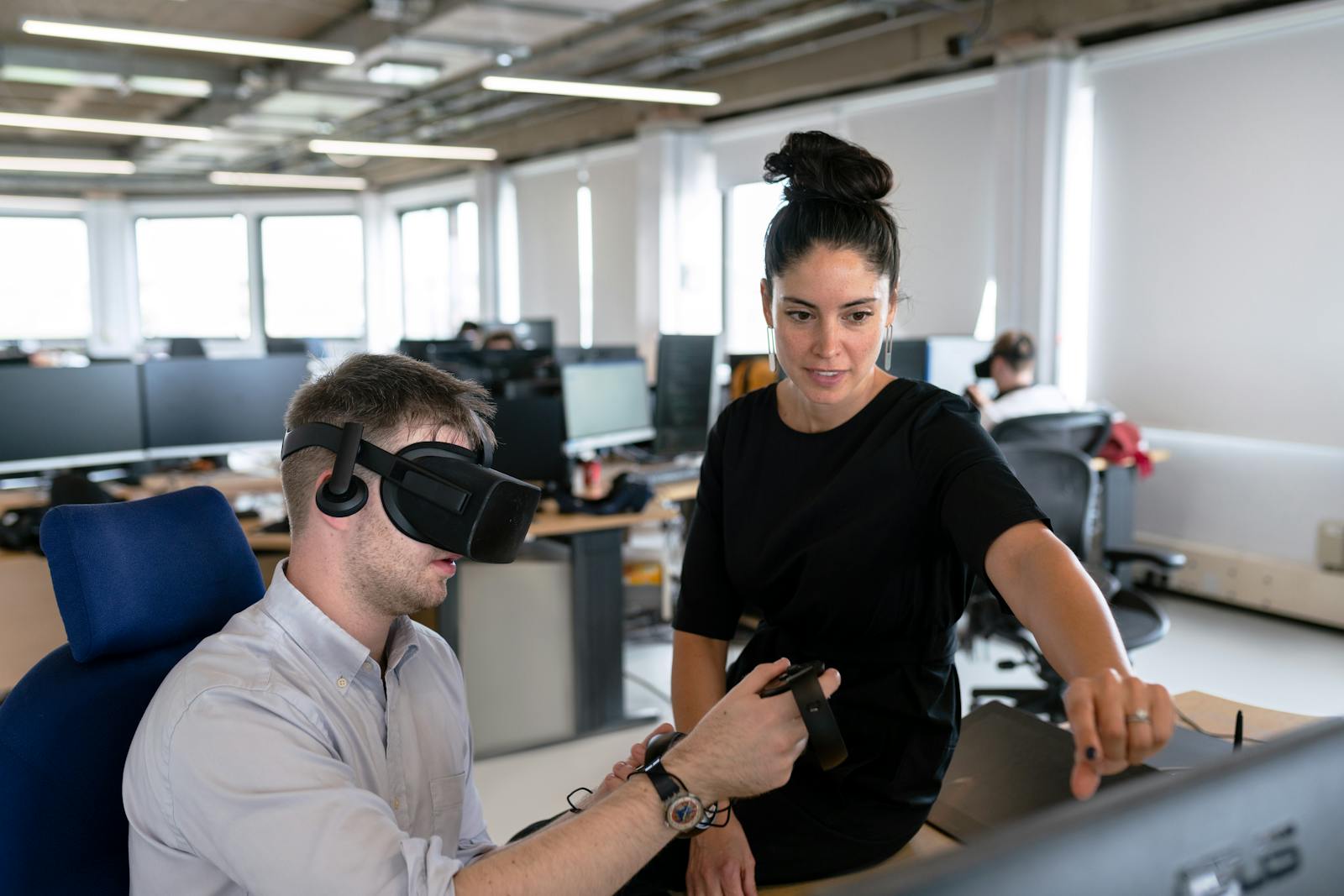Delivering Care in the Fields: How Florida’s FQHCs Reach Migrant Farmworkers with Mobile Clinics

Introduction: The Workers Behind the Food System, and the Gaps in Their Care
Florida’s vibrant agriculture industry depends on the labor of over 150,000 migrant and seasonal farmworkers, many of whom face staggering barriers to healthcare. From citrus groves in the Panhandle to tomato farms in Immokalee and nurseries in Homestead, these workers often endure long hours, hazardous conditions, and limited legal protections, all while remaining deeply underserved by the healthcare system.
Because of their mobility, lack of transportation, limited English proficiency, and in many cases, lack of documentation or insurance, these workers are far less likely to access preventive care, receive timely diagnoses, or manage chronic conditions. As a result, they are more prone to occupational injuries, infectious diseases, and untreated conditions like diabetes and hypertension.
To address this gap, Federally Qualified Health Centers (FQHCs) across Florida are meeting farmworkers where they are—in the fields, through mobile health clinics and community-based outreach teams. These mobile units deliver bilingual care directly to farms and labor camps, offering screenings, dental services, vaccines, and health education with the support of trusted promotoras (community health workers).
The result: healthcare access in motion for a population essential to Florida’s economy but long excluded from its health infrastructure.
1: Process Innovation — Taking Healthcare on the Road
Delivering care to farmworkers requires rethinking traditional clinic models. Florida’s FQHCs have transformed care delivery through a mobile-first approach, using technology and logistical coordination to reach people who can’t come to them.
Key Process Features:
- Mobile Health Units
Grant-funded mobile clinics are equipped with exam rooms, dental chairs, lab testing equipment, and refrigeration for vaccines. These units travel to farms on a fixed schedule, often early in the morning or late in the evening to accommodate work hours. - Farm Outreach Schedules
FQHCs work closely with farm owners and crew leaders to coordinate on-site visits. Weekly or biweekly rotations help maintain continuity of care, especially for workers managing chronic illnesses. - Language Access
Bilingual staff and interpreters are critical. Most mobile teams include Spanish- and Haitian Creole-speaking providers, ensuring that care is not lost in translation. - Electronic Health Records on the Go
Mobile teams use cloud-based EHR systems to securely document patient visits in real-time. This allows for data continuity, referral tracking, and follow-up scheduling when workers move to other regions. - Integrated Services
Care isn’t limited to primary visits. Many mobile units also provide behavioral health screenings, prenatal checkups, and dental cleanings, expanding access in communities where such services are rarely available.
These process innovations turn barriers into touchpoints, making healthcare delivery more nimble, localized, and effective.
2: People Power — Community Health Workers and Farmworker Trust
Reaching farmworkers isn’t just about logistics—it’s about trust. Many migrant workers come from backgrounds of systemic discrimination or fear of government institutions. Building trust means centering care around people they recognize and respect.
Key People Strategies:
- Promotoras de Salud (Community Health Workers)
Promotoras are often former farmworkers or members of the same communities they serve. Trained in health education and cultural mediation, they act as bridges between patients and the formal health system.
In Immokalee, promotoras from the Coalition of Immokalee Workers partner with local FQHCs to distribute information about flu shots, COVID vaccines, and dental care during harvest seasons. - Farmworker Women’s Groups
In north-central Florida, a local FQHC partnered with a farmworker women’s leadership group to co-design outreach strategies. The result: more effective communication, better attendance at mobile clinic days, and a more responsive care model tailored to women’s needs. - Bilingual and Bicultural Providers
Staff reflect the communities they serve. In regions like Homestead, FQHCs prioritize hiring Latino, Haitian, and Indigenous Guatemalan clinicians, especially those with personal experience in agricultural work. - Cultural Competency Training
All staff undergo training to understand the cultural, occupational, and immigration-related stressors affecting their patients. This helps ensure that care is delivered with dignity and without judgment.
When care is person-centered and culturally aware, farmworkers are more likely to engage, return for follow-up visits, and trust the providers they meet.
3: Real-World Examples — Impact on the Ground
Across Florida, these mobile and community-driven models are making a measurable impact.
Case Study: Suwannee River Area Health Education Center (AHEC)
Partnering with FQHCs across the Panhandle, Suwannee River AHEC helped coordinate over 200 mobile clinic visits to rural farms between 2021–2023.
Results:
- Provided care to over 6,500 migrant workers
- Administered 4,000+ vaccines, including COVID-19, tetanus, and flu
- Conducted screenings for diabetes, hypertension, and oral health at over 120 farms
Case Study: Community Health of South Florida, Inc. (CHI)
Serving farmworker communities in Homestead and Florida City, CHI operates multiple mobile units that deliver care directly to camps.
Results:
- 70% of mobile unit patients were uninsured
- 95% identified as Latino or Haitian Creole speakers
- CHI reduced ER visits among their farmworker patients by 18% within two years of initiating mobile outreach
Case Study: Rural Women’s Health Initiative – Gainesville Region
A collaboration between an FQHC and a women’s farmworker group created a model of peer-led outreach, where promotoras organized "Health in the Field” events.
Impact:
- Over 400 women received prenatal checkups and cervical cancer screenings
- Provided mental health support groups for women experiencing trauma or isolation
- Led to a doubling of participation in mobile clinic events compared to male-led outreach alone
These examples highlight that tailored, community-rooted care models are not just possible—they’re highly effective.
Conclusion: Mobilizing Equity, One Clinic at a Time
Migrant and seasonal farmworkers form the invisible backbone of Florida’s economy, harvesting the produce that ends up in grocery stores across the country. Yet for decades, they’ve remained marginalized from the healthcare system—their lives defined by mobility, risk, and vulnerability.
Florida’s FQHCs are rewriting that narrative.
Through mobile clinics, bilingual staff, trusted promotoras, and community-designed programs, they are delivering high-quality, respectful, and consistent care to a population that has historically been left behind.
The results are undeniable: lower emergency room use, earlier diagnoses, improved vaccination rates, and greater health literacy. But the work isn’t finished.
Continued success will require sustainable funding, expanded partnerships with local NGOs and farm operators, and a policy environment that protects and uplifts agricultural workers.
Mobile healthcare isn’t just a workaround—it’s a reimagination of access. And Florida’s FQHCs are proving that when you go to the people, rather than waiting for them to come to you, health equity becomes not just possible—but powerful.
📣 Are you a healthcare leader, nonprofit, or policymaker?
Join forces with your local FQHC to expand mobile care and farmworker outreach.
✅ Support grant funding for mobile units
✅ Partner with CHWs or promotoras
✅ Advocate for stronger farmworker protections and healthcare coverage
Let’s bring care to the fields—and justice to the frontlines of Florida’s workforce.
No Spam —
Just Good Stuff.
Join our newsletter for actionable advice, insider knowledge, and strategies that drive real results.
No fluff, just value.
%20(1).png)

.png)


























































































.png)
.png)
.png)



.png)
.png)
.png)
.png)